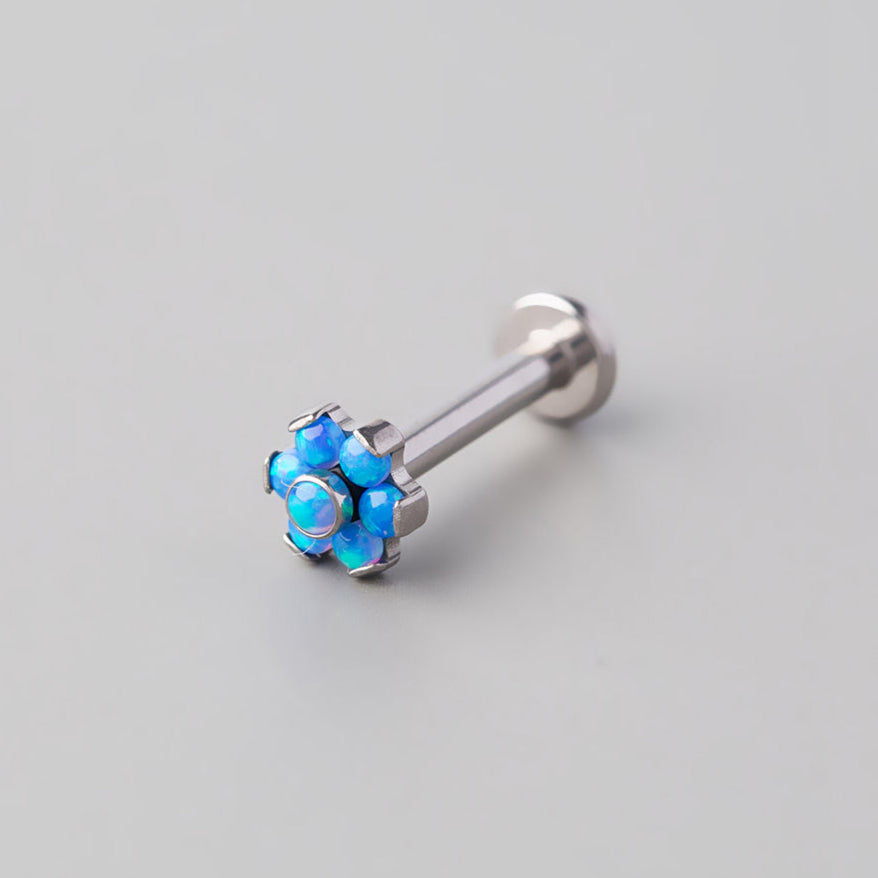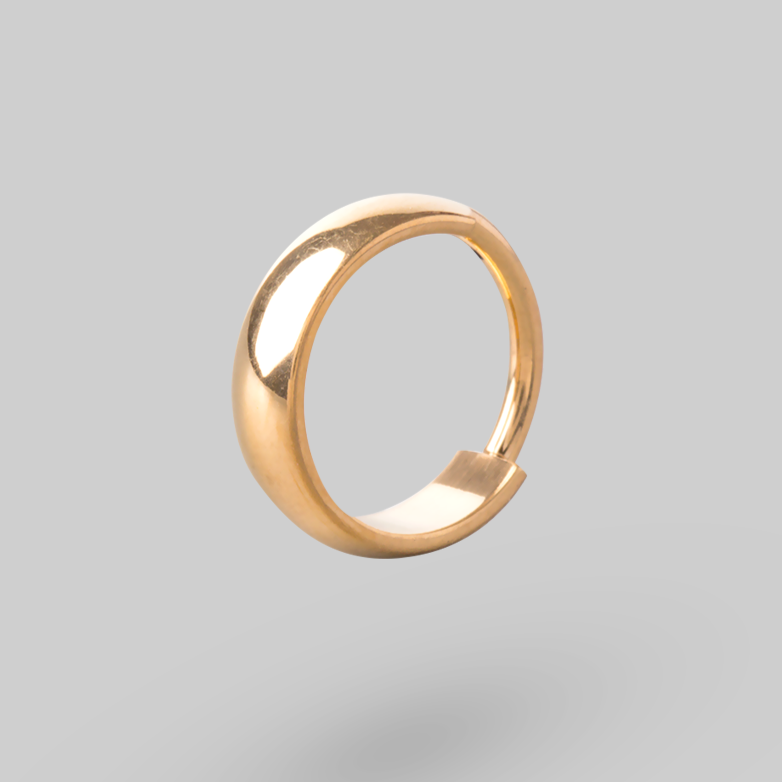Why Does My Piercing Itch? Real Causes, Debunked Myths & Expert Solutions from Camden Body Jewellery
Why Does My Piercing Itch? Real Causes, Debunked Myths & Expert Solutions from Camden Body Jewellery
Experiencing an itchy piercing can be anywhere from a minor annoyance to a cause for genuine concern. Whether it's a fresh helix or a well-established navel piercing, that persistent tickle often leaves you wondering: What's going on? At Camden Body Jewellery, we're not just about providing the UK's finest selection of high-quality body jewellery; we're also dedicated to empowering you with the knowledge to keep your modifications happy and healthy. Let's delve into the genuine reasons behind an itchy piercing, separate fact from fiction, and equip you with expert solutions.
The Real Reasons Behind an Itchy Piercing Sensation
Before you panic, understand that an itchy piercing isn't always a sign of disaster. Often, it's a normal part of the process or a minor irritation. Here are the most common culprits:
The Natural Healing Process: A Good Itch
Just like a scraped knee, your body works tirelessly to heal a new piercing. As new skin cells form and collagen fibres knit together, nerve endings can become stimulated, leading to an itching sensation. This is a very common and usually positive sign, indicating that your body is doing its job. This kind of itch is typically mild and intermittent, especially during the initial piercing healing process.
Allergic Reactions: The Unseen Irritant
One of the most significant, yet often overlooked, causes of an itchy piercing is an allergic reaction to the jewellery material itself. Many people are sensitive to nickel, a common alloy found in lower-grade metals. If your piercing itchy sensation is accompanied by redness, swelling, or a rash that extends beyond the immediate piercing site, an allergy might be the cause.
At Camden Body Jewellery, we champion materials like implant-grade titanium piercing jewellery and high-quality surgical steel jewellery precisely because they are hypoallergenic and nickel-free (surgical steel has extremely low nickel content), making them the best jewellery options for sensitive skin.
Irritation vs. Infection: Knowing the Difference
It's crucial to distinguish between simple irritation and a full-blown infection. Irritation can stem from bumping the piercing, snagging it on clothing, sleeping on it, or even using harsh cleaning products. An irritated piercing might be red, a little swollen, and definitely itchy. An infection, however, will typically present with throbbing pain, significant swelling, hot skin around the piercing, and discharge that is green or yellow and foul-smelling. If you suspect an infected piercing vs irritated, consult a professional immediately.
Dry Skin & Environmental Factors
The skin around your piercing can become dry, especially in colder weather or if you're not adequately hydrated. Dry skin can feel tight and, you guessed it, intensely itchy. Similarly, environmental factors like dust, pet dander, or even certain fabrics can irritate the delicate skin around a healing or healed piercing.
Over-Cleaning or Under-Cleaning Your Piercing
Finding the right balance for piercing aftercare is key. Over-cleaning with harsh chemicals, alcohol, or hydrogen peroxide can strip the skin of its natural oils, leading to dryness and irritation. Conversely, under-cleaning can allow crust and bacteria to build up, leading to irritation and potential infection. Both scenarios can result in an itchy piercing.
Debunking Common Piercing Itch Myths
Misinformation runs rampant, especially when it comes to body modifications. Let's set the record straight on a couple of common myths surrounding itchy piercings.
Myth: An Itchy Piercing Always Means Infection
False. As we've discussed, itching is a very normal part of the healing process. While an infection can cause itching, it will almost always be accompanied by other, more severe symptoms like intense pain, significant swelling, heat, and pus. Don't jump to conclusions; assess all symptoms before self-diagnosing an infection.
Myth: Scratching Will Speed Up Healing
Absolutely not! Scratching an itchy piercing, whether new or healed piercing itchy can introduce bacteria from your hands, damage delicate new tissue, and significantly delay the healing process. It can also lead to migration or rejection of the jewellery. Resist the urge to scratch at all costs.
Expert Solutions for a Happy, Healthy Piercing from Camden Body Jewellery
Now that we've covered the 'why', let's focus on the 'how' to alleviate that irritating itch and ensure your piercing thrives. Our recommendations are rooted in industry best practices and our commitment to your piercing journey.
Choose the Right Jewellery Material for Sensitive Skin
This is paramount. If you're experiencing persistent itching, especially with a new piece of jewellery, consider upgrading to a premium, hypoallergenic material. Camden Body Jewellery specialises in:
* Implant-Grade Titanium: The gold standard for initial piercings and sensitive skin. It's inert, lightweight, and completely nickel-free.
* High-Quality Surgical Steel: A popular and durable option, but ensure it's implant-grade 316L surgical steel to minimise nickel content.
Switching to high-quality jewellery can often resolve chronic itching and irritation almost immediately. Browse our extensive collection of titanium piercing jewellery and gold body jewellery today.
Master Your Aftercare Routine
Consistency and gentleness are key. Follow your piercer's instructions diligently. Generally, this involves:
* Saline Solution: Use a sterile saline spray (0.9% sodium chloride) 1-2 times a day. Gently mist the piercing and pat dry with a clean paper towel. Avoid cotton balls or swabs that can leave fibres.
* Hands Off: Only touch your piercing with clean hands during aftercare. Avoid twisting or rotating the jewellery.
* Shower Smart: Let clean water run over your piercing in the shower, but avoid harsh soaps or body washes directly on the site.
Proper piercing aftercare is your best defence against irritation and infection.
Hydrate Your Skin and Protect Your Piercing
Keep your skin hydrated by drinking plenty of water. For dry skin around a healed piercing itchy from dryness, you can carefully apply a very small amount of a gentle, unscented, non-comedogenic moisturiser around the piercing, avoiding the fistula itself. Protect your piercing from snags by being mindful of clothing, hair, and even how you sleep.
When to Seek Professional Advice for Your Itchy Piercing
While most itchy piercings can be managed with proper aftercare and quality jewellery, there are times when professional intervention is necessary. If your itch is accompanied by:
Recognising Serious Issues
- Intense, throbbing pain
* Significant swelling that doesn't subside
* Hot skin around the piercing
* Thick, discoloured (yellow, green) pus with a foul odour
* Red streaks emanating from the piercing site
* Fever or general malaise
These are signs of a potential infection or serious complication. Do not attempt to self-treat; consult your piercer or a medical professional immediately. Never remove jewellery from an infected piercing yourself, as this can trap the infection inside.
Stop The Reaction Before It Starts
90% of piercing irritation comes from poor quality metal. Upgrade to ASTM F-136 Implant Grade Titanium-the biocompatible gold standard used by professional piercers worldwide.
Myths vs. Reality
Myth: "Itchiness means infection."
False. Infection usually involves throbbing pain, heat, extreme swelling, and yellow/green pus. Mild itching alone is rarely an infection.
Myth: "Turn the jewelry to scratch the itch."
Never twist! Twisting breaks the healing seal, introduces bacteria inside the wound, and extends healing time by weeks.
Why Shop Camden?
-
Implant Grade Titanium
ASTM F-136 Compliant
-
Tracked UK Delivery
Free over £40
-
Sterilised Piercing Jewellery
Keeping your skin safe



